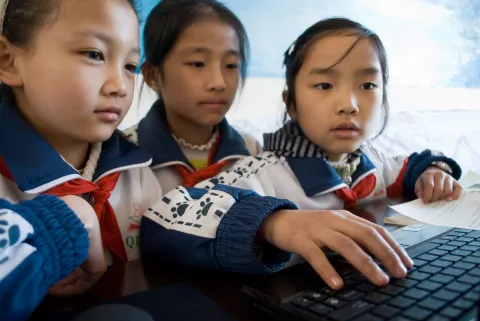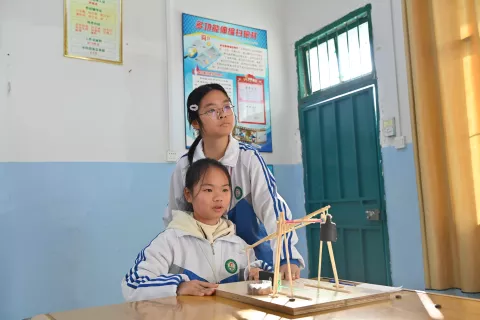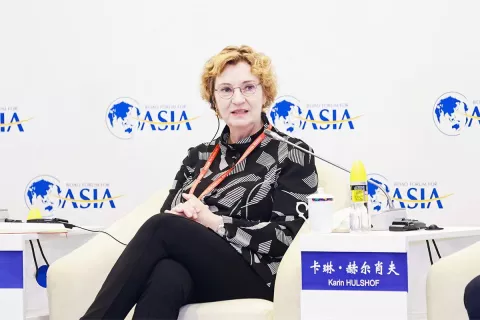A sparkling soda sparks understanding of emotion among rural children
A sparkling soda sparks understanding of emotion among rural children
- Available in:
- 中文
- English
Zhong County, Chongqing - A bottle of fizzy cola in hand, Julie Casey, the senior director of SEAL consultancy in the UK, started her Social Emotional Learning demo lesson with a story. “I woke up terribly late this morning because of the jet-lag.“ She shook the soda bottle. “I quickly got dressed and rushed out of the hotel with an empty stomach,” she said as she shook the bottle another time. “I accidentally stepped on a pile of dog poop on the way to school.” She shook again. “I feel extremely nervous because this is my first lesson in China,” she continued. “And I found that Daniel drank my cola which was supposed to be used as my teaching aid for this class!” She shook the bottle really hard. “Tell me what will happen if I open this soda bottle?”
"It will explode!” children screamed when Julie tried to spin the cap. "That's right. We all experience unpleasant things sometimes. It's okay if we feel sad or angry. But if we let our negative feelings and emotions build up, it will eventually explode like this soda. So we need to understand our feelings and learn how to manage it,” said Julie.
Although these rural children had never sat in a British teacher's class with 100 county education administrators, experts, teachers and headmasters observing, the fizzy story helped them to quickly forget their worries to become excited, interested and engaged. As Julie's teaching assistant and translator who had allegedly “consumed” the teaching aid, I had the special privilege to watch up close and also participate in class activities such as circle game, story-telling, drama scene and group challenges. Watching the dynamic interaction between the 60-year-old British lady and 40 10-year-old Chinese rural students was as fascinating as enjoying an NBA game in a courtside seat.
"There are nearly 70 million children left behind living with relatives or alone in rural areas while their parents migrate for work in the cities. The emotional loneliness, pressure and insecurity felt by these children are immense and can be destructive,” said Gillian Mellsop, UNICEF's Representative to China.
Julie has given a good demonstration of how teachers can facilitate students' social and emotional learning in classroom settings. The Social and Emotional Learning (SEL) project jointly developed by UNICEF and China's Ministry of Education is targeted to satisfy rural children's needs and support implementation of national education reform and development plan. As an important component of Child Friendly Schools, the project aims at improving the whole school climate through an integrated approach to ensure that children feel safe, respected, confident and happy in schools, know how to establish sound interpersonal relationship with adults and peers, and actively participate in school management and activities.
Local education administrators and head teachers were very impressed with the demo lesson, not only about the content of SEL curriculum but also the instructional strategies and the variety of activities applied within a 40-minute class period.
At the end of the session, Julie asked the students to evaluate her lesson with thumbs signal. All children gave her the thumbs-up except for one boy. When Julie approached to him for comments, he gave her two thumbs-up and said, “I was just kidding. You are the very first foreigner whom I've ever met, but I feel truly happy.”
From the demo lesson, I witnessed how children are willing to express themselves, share with others about their feelings and learn well when the classroom climate is supportive and child-friendly.
And I have learned my lesson too. I will never consume a teaching aid again!





